Brannock Humphries & Berman Obtains Important Ruling in Attorney’s Fee Fight
In an extensive 40-plus-page opinion, a three-judge panel of the Second District Court of Appeal provided far-reaching guidance on the division of contingent attorney’s fees earned after a lawyer departs a law firm.
The case stemmed from a tragic accident on I-75 that claimed the life of Logan Scherer and caused injuries to the entire Scherer family. Following the accident, the Scherers hired attorney Joseph Patsko to represent them in their tort claims against the negligent truck driver and his employer. Due to long-simmering conflicts with his law firm, though, Mr. Patsko decided to depart the firm soon after the Scherer case began. He and the firm sent the Scherers the letter required by the Florida Bar rules offering them the choice to stay with the firm, follow Mr. Patsko, or choose a new lawyer entirely. The Scherers elected to follow Mr. Patsko.
At the time of his departure, Mr. Patsko had spent about 50 hours on the Scherers’ personal-injury lawsuit. After he left his former firm, Mr. Patsko worked tirelessly to obtain a favorable settlement for the Scherers, pouring in 1,500 hours and $177,000 in costs over a two-year period. At that point, when Mr. Patsko sought to recover the attorney’s fee he earned from his representation agreement with the Scherers, his former firm claimed that the fee actually belonged to them.
The Scherers were paid their portion of the settlement, and Mr. Patsko and his former firm then litigated the disputed fee. Relying on old cases that address partnership dissolutions, the trial court sided with the firm, finding that despite having no responsibility for the case after the Scherers followed Mr. Patsko, the firm was entitled to the lion’s share of the fee. On appeal, the Second District sided with Mr. Patsko, embracing the argument made by Brannock Humphries & Berman that such a result undermined the core principle of the Bar rules that clients must have the ultimate freedom to choose their lawyers. Thus, the Second District ruled that the fee would be divided on a quantum meruit basis, as Mr. Patsko had argued all along. The Florida Supreme Court subsequently declined the former firm’s invitation to second-guess the Second District’s decision.
Following the Second District’s mandate, the trial court entered an order giving the former firm its quantum meruit fee for the small amount of work done on the case while Mr. Patsko was a shareholder. The rest of the fee was then awarded to Mr. Patsko.


